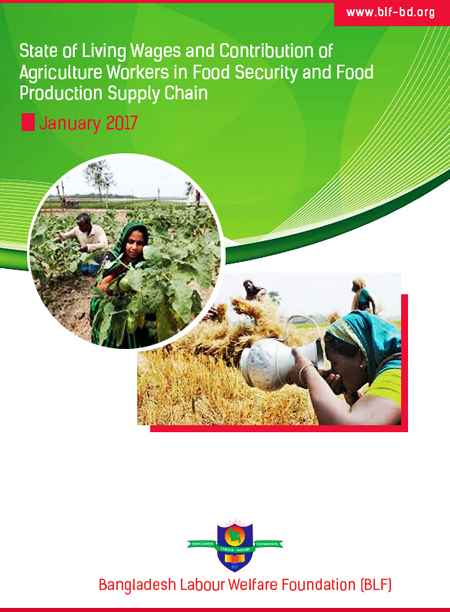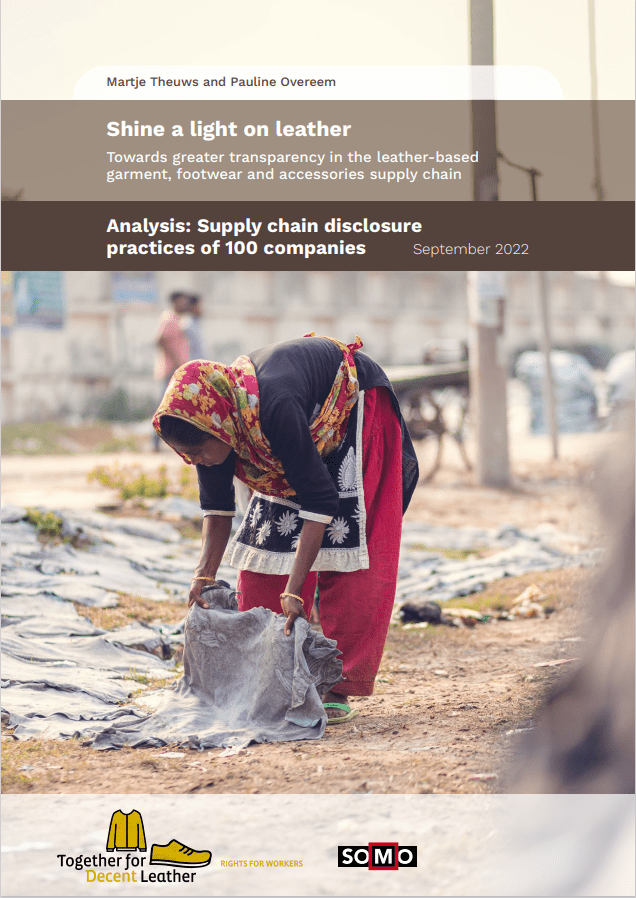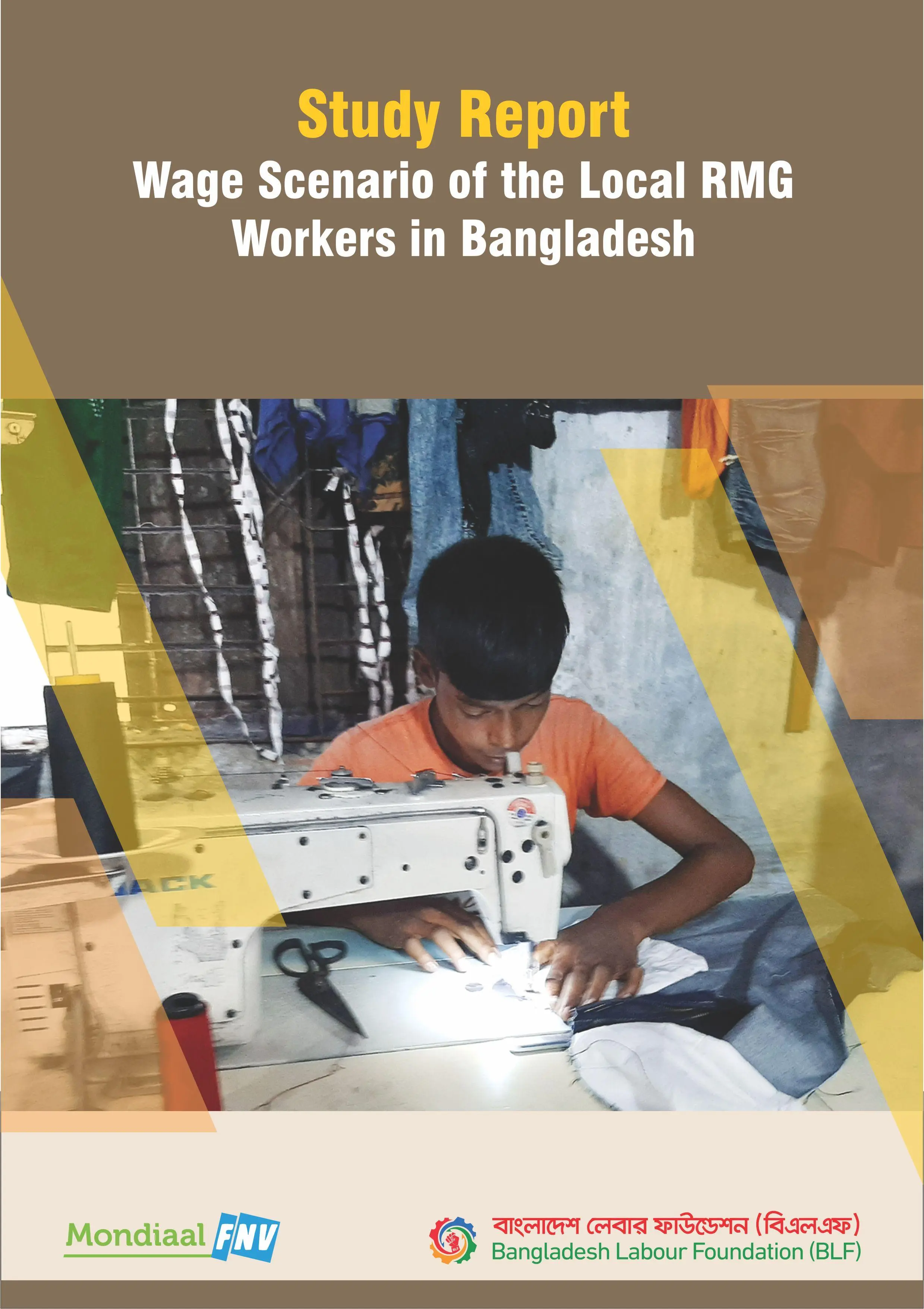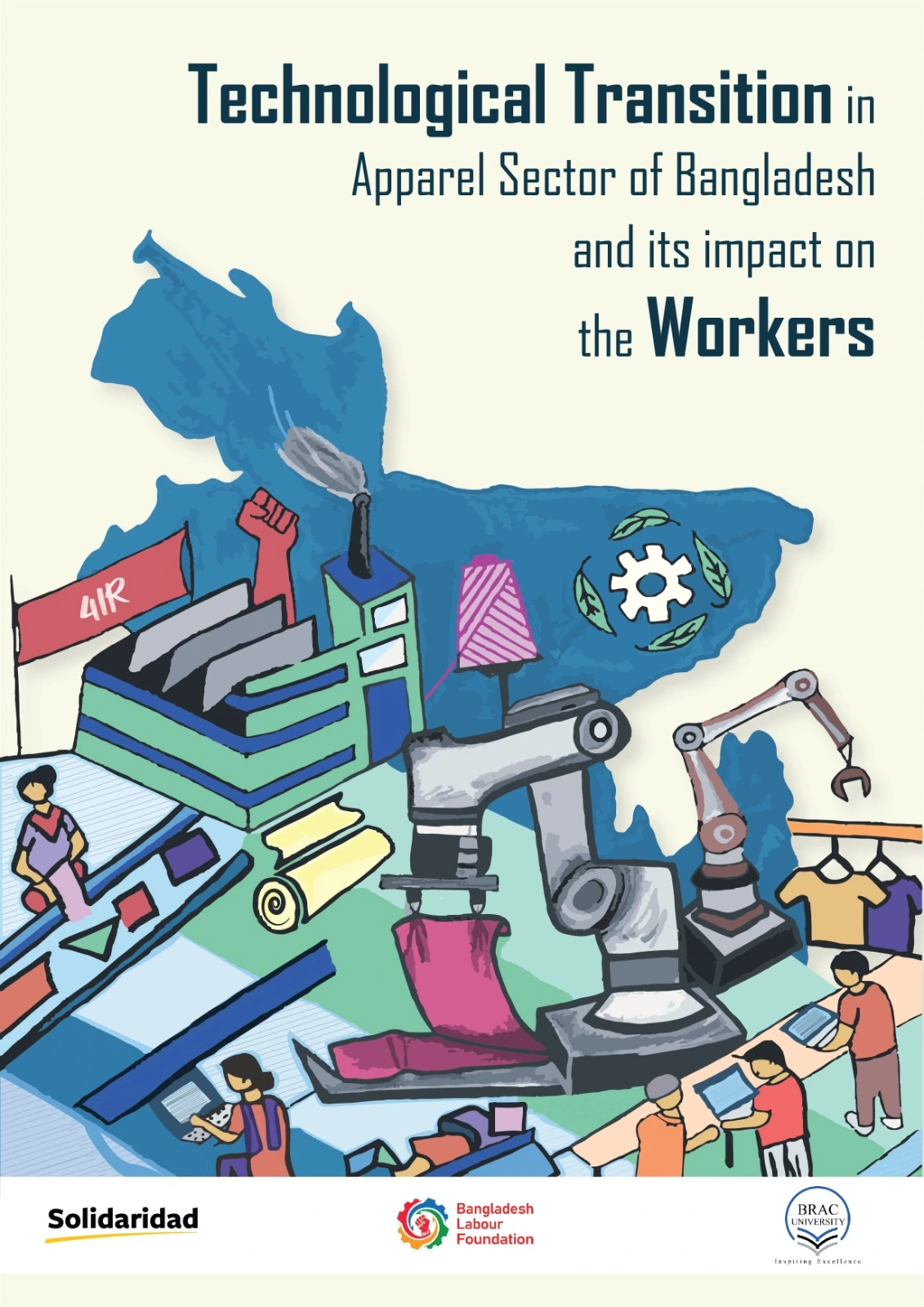Research & Study
Occupational Safety & Health (OSH) Situated in Keraniganj Local Readymade Garments
December, 2021
The study was commissioned by Bangladesh Labor Foundation (BLF) to access Occupational Safety and Health (OSH) status from both workers’ and employers’ points of view, existing practices, and the extent of implementation of OSH related national laws and regulations at the factory level of the local RMG located in Keraniganj.
It also provides recommendations for the improvement of occupational and health management together with the reduction of hazardous forms of child labour. The study assessed the perception of relevant government department and gathered their experience to identify the potential solutions. The report intends to describe the methodology, legal framework, and findings and concludes by recommending some key measures that will contribute to and will create a scope for adopting evidencebased initiatives and doing advocacy to resolve the issue.
Key Words: OSH, Keraniganj, Hazardour, LRMG
Background
The ILO set International Labour Standards on Occupational Safety and Health (OSH) through adopting three key international instruments. Followingly, Bangladesh has been conducted comprehensive OSH assessment in in significant local readymade garments (RMG) factories located in Keraniganj. Local readymade garment enterprises in Keraniganj employ approximately 300,000 people, according to rough estimates from DIFE. Similar to other informal sectors, labour rights in these factories are significantly neglected, with inadequate attention to wages, benefits, working hours, and Occupational Safety & Health (OSH). Working conditions, including space per worker, ventilation, lighting, access to safe drinking water, sanitation, first-aid facilities, and personal protective equipment, are often insufficient or absent. The rights violations faced by female and girl child workers are particularly severe compared to other workers in this sector. Workers, regardless of gender or age, are largely unprotected in their work environments due to multiple factors. It has been observed that the OSH management in these factories is inadequate and not properly evaluated. It emphasized the need for fire protection and detection systems, safe exits, first aid and medical assistance, and proper firefighting and evacuation procedures. It also identified significant potential for accidents and emergencies, addressing OSH risk prevention at the factory level. The assessment highlighted risks and hazards related to electrical, fire, structural, and physical issues from the perspective of emergency prevention, preparedness, and response.
Objectives
- To access OSH status from both workers' and employers' points of view, existing practices and extent of implementation of OSH related national laws and regulations at the factory level.
- To generate a benchmark following ILO-OSH 2001, and Bangladesh National Building Code (BNBC) protocol and standard for continual improvement of OSH management system incorporating Corrective Action Plan (CAP) with specific corrective actions and sustainable safety culture in the local RMG factory.
- To identify key opportunities, constraints and development initiatives needed for promoting the rights of the workers.
- To explore gender dimensions and discrimination that persist in the workplace against workers, particularly for female.
Key Findings
- The highest number of respondents irrespective of their gender identity attained primary level education although far more male respondents attained this level of education in comparison with female respondents.
- The better and decent working condition is indispensable for the sustainable growth of the sector. It needs to be developed better working culture in the sector with meaningful participation of owner/management and workers. The workers and owners both should be capacitated on gender issues and gender sensitivity.
- Gender-based violence and abuse is a challenge for the female workers although it is less reported and articulated. The standard grievance or complaint mechanism should be developed in the factory where the workers regardless of their age and gender identity may registered their complaints fearlessly. A Helpline should be introduced for the workers.
Recommendations
- DIFE under the Ministry of Labour and Employment should devise a more systemic and comprehensive monitoring strategy to standardize and improve the existing working conditions of the sector. The owners should establish Building based safety committee with the support of labour rights organizations and the government. DIFE should monitor both the establishment and effective operation of these safety committees.
- DIFE under the Ministry of Labour and Employment should devise a more systemic and comprehensive monitoring strategy to standardize and improve the existing working conditions of the sector.
- The deprivation and marginalization of single mothers are more acute in comparison with the other workers. In this respect, the owners and DIFE should take concrete and extensive steps for the gradual improvement of the rights of female workers in this sector.
- BLF must continue advocacy to implement compliance by administering and enforcing relevant legal instruments.
- The factories have to follow the labour laws to run their business. At the same time, the labour rights organization and NGOs should focus on generating the options for the children to receive basic literacy and counting through establishing nonformal education in this location. It is worth mentioningthat the adult workers who do not have basic literacy and counting skills should be supported through non-formal adult literacy program.
The precarity of this sector reminds us of the idea of ‘sweatshop or sweat factory that was prominent in the 18th Century and post-second world war period. The sweatshop or sweat factory that characterized poor working conditions included long hours with unfair wages, poor ventilation, inadequate workspace, insufficient lighting, or uncomfortably high temperatures is also reveals the same scenario in the local RMG sector. The uncertainty of the labour markets of this sector weakens social protection and generates economic deprivation of the workers. Moreover, it is also evident that home (sleeping place) and workplace are the same place for a significant number of workers, particularly for male and male child workers that adds far more risks to child workers of being abused by the senior workers. Traditional provisions of social protection based on stable employment, and clear definitions of employers and employees, are becoming increasingly obsolete. In this perspective, improving working conditions that encompass both physical and psychosocial demands of the workers is Indispensable for ensuring healthier, safer, and more resilient and more socially just workplaces. The concerted effort of the government, labour rights organizations, trade unions, workers and most importantly the owners is crucial to promote decent working conditions in this sector.

Publication Details
Date: December, 2021
Contact
Bangladesh Labour Foundation (BLF)
107 Bir Uttam C.R. Datta Road
Dhaka – 1205
Bangladesh






